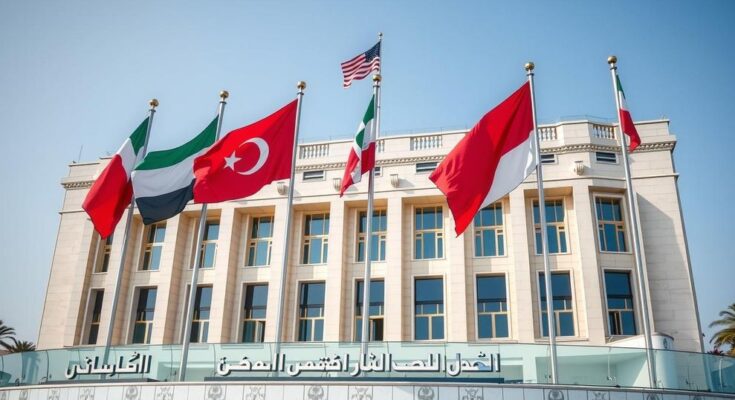The UAE assured U.S. lawmakers it would stop supplying weapons to Sudan’s RSF, prompting legislators to reconsider blocking a $1.2 billion arms sale. Key lawmakers emphasized the need for monitoring UAE compliance with this commitment, which could influence the conflict resolution in Sudan.
The United Arab Emirates (UAE) has assured the United States that it will cease supplying weapons to Sudan’s paramilitary group amid its ongoing civil war, according to U.S. lawmakers. This commitment led lawmakers to reconsider their efforts to block a proposed $1.2 billion arms deal with the UAE. Senator Chris Van Hollen noted that he had received a letter from the White House detailing the UAE’s assurances regarding its relationship with Sudan’s Rapid Support Forces (RSF).
The letter, signed by Brett McGurk, the U.S. coordinator for Middle East policy, indicated that the UAE is not currently transferring arms to the RSF and has pledged not to do so in the future. Van Hollen emphasized that he views this as a critical leverage point to mitigate the violence in Sudan. In parallel, Representative Sara Jacobs remarked on the importance of monitoring the UAE’s compliance with this promise, stating that a lack of UAE support could diminish the RSF’s military capabilities, potentially favoring negotiations for a ceasefire.
Despite the assurances given to the U.S., the UAE has faced ongoing allegations regarding its support for the RSF. UN experts previously indicated that there were credible accusations against the UAE for funneling weapons to the RSF via Chad. The potential arms deal with the UAE consists of significant weaponry, including long-range ATACMS missiles, originally proposed during former President Donald Trump’s administration. Following his defeat in the 2020 election, President Biden sought increased oversight of arms sales to the UAE, which has complicated the approval process.
The ongoing conflict in Sudan has seen widespread violence and humanitarian crises, with the Rapid Support Forces (RSF) engaged in combat against Sudan’s national army. The RSF, linked to numerous human rights violations, has required external military support to sustain its operations. The United Arab Emirates has been accused of providing such support, leading to international scrutiny and a push within the United States Congress for stricter controls on arms sales to the Gulf nation. Understanding the dynamics of this conflict and the geopolitical relationships at play is crucial to comprehending the recent developments regarding arms sales and military assistance.
In summary, the UAE has promised the United States to halt weapon transfers to Sudan’s paramilitary forces, leading U.S. lawmakers to reconsider blocking a substantial arms sale. While assurances from the UAE may alleviate immediate concerns, ongoing scrutiny and monitoring of their compliance are essential. The resolution of the conflict in Sudan may hinge on these developments, highlighting the complex interplay of international relations in addressing regional violence.
Original Source: www.france24.com




